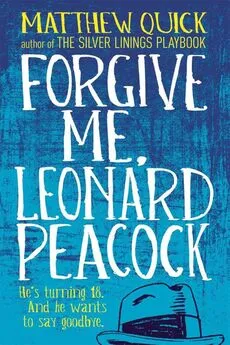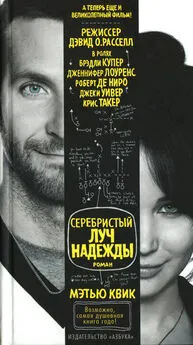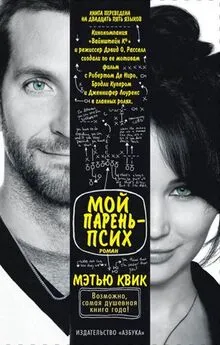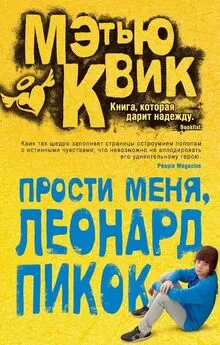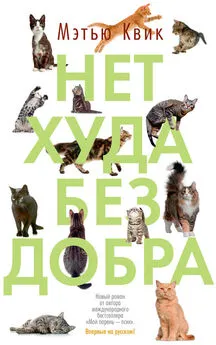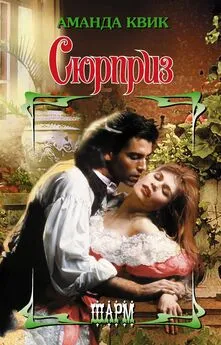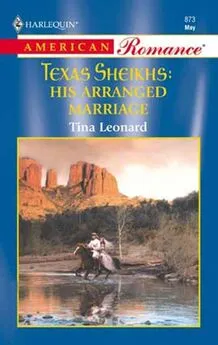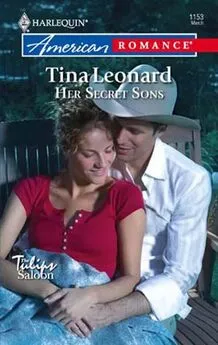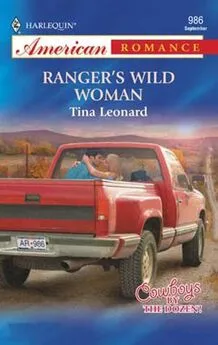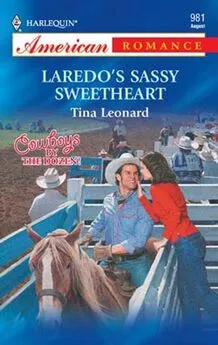Мэтью Квик - Forgive me, Leonard Peacock
- Название:Forgive me, Leonard Peacock
- Автор:
- Жанр:
- Издательство:неизвестно
- Год:2013
- ISBN:нет данных
- Рейтинг:
- Избранное:Добавить в избранное
-
Отзывы:
-
Ваша оценка:
Мэтью Квик - Forgive me, Leonard Peacock краткое содержание
How would you spend your birthday if you knew it would be your last?
Eighteen-year-old Leonard Peacock knows exactly what he’ll do. He’ll say goodbye.
Not to his mum – who he calls Linda because it annoys her – who’s moved out and left him to fend for himself. Nor to his former best friend, whose torments have driven him to consider committing the unthinkable. But to his four friends: a Humphrey-Bogart-obsessed neighbour, a teenage violin virtuoso, a pastor’s daughter and a teacher.
Most of the time, Leonard believes he’s weird and sad but these friends have made him think that maybe he’s not. He wants to thank them, and say goodbye.
In this riveting and heart-breaking book, acclaimed author Matthew Quick introduces Leonard Peacock, a hero as warm and endearing as he is troubled. And he shows how just a glimmer of hope can make the world of difference.
Forgive me, Leonard Peacock - читать онлайн бесплатно полную версию (весь текст целиком)
Интервал:
Закладка:
“It rocked!” Asher kept saying. “So awesome!”
“All right, all right,” Dad said all cool, like he used to whenever he’d had a few drinks and his eyes were glassy. “All right, all right.” He’d say it fast and sort of rhythmic, putting the accent on the second ri and dropping the last t , so it sounded like “all-right, all-rye .”
Toward the end of our time together, when Dad really went off the deep end, you could say anything to him and he’d say, “All-right, all-rye .” “Dad, I failed Earth Science.” “All-right, all-rye .” “Mom’s banging this French fashion designer she used to model for.” “All-right, all-rye .” “I just lit your balls on fire, Dad.” “All-right, all-rye .” He became one of those dolls that repeat a catchphrase every time you pull its string. “All-right, all- rye .” “All-right, all- rye .” “All-right, all- rye .”
In our hotel room my dad said, “You guys can rent a movie, but stay in the room. All-right, all-rye? I’m going back down to the floor. Feeling lucky tonight,” which was no surprise, because my dad was always leaving me alone, even when I was a kid.
Asher and I watched the clock for ten minutes after my dad left, just long enough for him to start gambling, before we began exploring the hotel.
We ran down the endless mazelike hallways, knocking on the doors we passed, emptying the ice machines and having ice-ball fights in the stairwell; took turns sitting in the maid’s cart and pushing each other into walls; tried to sneak into an after-hours dance club and got caught by the bouncer, who laughed his ass off when—with straight faces—we told him it was Asher’s twenty-first birthday. We searched the casino floor for the members of Green Day and got kicked out, scarfed down some late-night pizza, and ended up sitting on the boardwalk with our elbows on the railing and our feet dangling over the side.
“Man, this night was the shit!” Asher said. “Best birthday present ever. Hands down.”
“Yeah, you know it,” I remember saying as we listened to the waves crashing somewhere in the darkness.
“Do you think we’ll come back to this hotel when we’re adults?” Asher asked. “Do you think we’ll still be hanging out?”
If you would have put my grandfather’s Nazi P-38 handgun to my eleven-year-old head, told me to tell the truth or die, and then asked me if Asher and I would be best friends for life, I would have said yes on that night without hesitation. [40]
“Probably,” I said, and then we just sat dangling our feet off the boardwalk.
We really didn’t say much more than that; nothing all that extraordinary happened—just typical stupid-ass kid stuff. [41]
Maybe it was the type of high only kids can get and understand.
There were hundreds of adults drinking alcohol and gambling and smoking that night, but I bet none of them felt the high Asher and I did.
Maybe that’s why adults drink, gamble, and do drugs—because they can’t get naturally lit anymore.
Maybe we lose that ability as we get older.
Asher sure did.
TWENTY-ONE
One day after a long, depressing afternoon wearing my funeral suit and studying miserable adults in Philadelphia, I exited my town’s train station, and this girl [42]I had never seen before stuck a piece of paper in my face. Then she said, “The way, the truth, and the light!”
“Excuse me?” I said.
“Here’s a tract. Read all about it.”
I took the piece of paper, which was like a mini-comic book. The pictures and words were all in red ink, which looked dramatic and intense. On the front cover was a picture of a smiling man. Underneath his kind face were these words: You can be the nicest guy in the world, but without Jesus in your heart, you are going to hell .
I remember laughing when I read it, because it seemed so over the top—like a joke maybe. And I wondered if this throwback-looking girl was playing some sort of game—like this was just part of her spiderweb, her trap.
“Who are you?” I said, trying to sound cool and collected and Bogie-like.
“My name is Lauren Rose. And I’m here to show you the way. Tell you the good news.”
Her name was Lauren and she was a tall blond.
Lauren .
If I were the type of person who believed in signs, I would have been a little freaked, because she actually looked very much like a youngish version of Lauren Bacall, a tall blond who was also cat-faced, and was devastatingly beautiful in her prime—irresistible. And after watching Bogie win Bacall so many times in black-and-white Hollywood land, I felt a sort of inevitability. This would be the first girl I would kiss. I declared it in my mind—set the goal, and then I locked on like a greyhound chasing a rabbit.
“What good news?” I asked, trying to sound as calm, suave, and confident as black-and-white Bogie—pretending that we were in The Big Sleep . “Because I sure could use some.”
“That Jesus Christ died for your sins.”
“Oh.”
I didn’t know how I felt about that, and her selling religion seemed to snap me out of the scene for a moment, but I had already set the goal—and I knew that Bogie always gets Bacall no matter what the odds, no matter how many bad guys are in his way. So I tried to change the subject.
“I don’t think I’ve seen you before. Do you go to high school here in town?”
“No, I don’t,” she said to me, and then said, “Jesus loves you,” to a group of businessmen who ignored her and the tract she was trying to hand them. They didn’t even look at her. It was like she was invisible. And while I’m not really one for getting into debates with religious people either, I felt bad for Lauren, because she had this desperate look in her eyes—the kind that needs someone else to make it go away. I imagined she was invisible to most commuters, who only wanted to go home after a long day of work, which I knew from many hours of observation.
I mean—there are people who believe in one of the various gods available already and therefore don’t need the tract, and then there are people who will never believe in this sort of thing. And I imagine the gals and guys in between mostly aren’t interested in being harassed on their way to and from work.
“Where do you go to school?” I asked, hoping to change the subject.
“Oh, I’m homeschooled.”
“So your mom teaches you?”
“And my dad. Yes.”
She kept looking eagerly at the people coming out of the subway station and wasn’t really paying me much attention anymore, which I thought was weird, since I was the only person who had taken her pamphlet. You’d think she’d concentrate on winning me over, right? She was a classic femme fatale—determined, gorgeous, a real dame.
“Why?” I said.
“Why what?”
“Why are you homeschooled?”
“My parents want me to have a Christian education.”
“What’s that?” I said, just to keep the conversation going.
“An education rooted in the Bible.”
“Oh.”
“Jesus loves you,” she said to an old man who ignored her outstretched pamphlet.
“If I read this,” I said, holding up the story she gave me, “can we talk about it afterward?”
She turned to face me and her eyes lit up. “Are you serious? You’ll really read it and consider giving your life to Jesus Christ?”
“Sure,” I said, and then laughed. I must have been the first person who ever agreed to read her tracts. She was acting like a little excited kid, but she had to be about my age—and yet she seemed so much younger, maybe unspoiled, like she could still get really excited about something in public without trying to hide it. Even though she was getting excited about Jesus, I liked the fact that she was genuinely keyed up about anything.
She said, “Do you want to come to my church this Sunday?”
“Let me read this and we can talk about it.”
“How will you contact me afterward?” she said, looking very concerned.
“I’m going to read it on that bench over there and then we can talk, okay?”
She bit down on her bottom lip and nodded way too enthusiastically—like it sort of creeped me out—and if she wasn’t doing that cat-eye thing that Lauren Bacall sometimes does in Bogie films, the thing where she squints sophisticatedly and looks up at her man from under her eyebrows or seductively out of the corners of her eyes, I probably would have left right then.
When I started toward the bench, she said, “Oh, wait,” and then began shuffling through her papers. She smiled and said, “Read this one instead,” and extended a new pamphlet toward me. “It’s for teenagers.”
“Okay.” I sat down on the bench and read it in about five minutes.
It was sort of unbelievable.
Actually, it was a little insane—and should have been my cue to get the hell away from this dame.
The basic gist is that there are four teenagers in a convertible, out “cruising”—two guys, two girls. They go to the woods to “park,” which I gather basically means to drink beer, make out, and feel each other up. The protagonist of the pamphlet is the boy in the backseat, who is a “born-again Christian” and feeling a bit conflicted about the “sins” that are happening. In the little bubble over the kid’s head it said something like, “Cindy is so beautiful and I really want to go all the way with her, but I know Jesus would be disappointed in me. I already let him down by drinking beer.” [43]
At one point you get the protagonist’s view of the front seat—it’s one of those old-style front seats that’s like a bench with no space in between the driver and passenger, or no center console, which makes me think this is a very old tract—maybe from the 1950s. And we see the girl’s naked ankles sticking up in the air, which I guess means the couple in the front is having sex. Cindy, the girl in the backseat, says to the protagonist, “You know you wanna. Let’s have some fun. Didn’t your mother ever tell you to try new things?”
The next frame shows protagonist Johnny chugging a beer.
And then we see them driving home and the driver’s eyes are slits, which I assume means he is drunk.
We get a close-up of Johnny’s face next, and the bubble over his head reads, “I let you down, Jesus. Sex. Booze. I’m so so sorry. Can you ever forgive me?”
You won’t believe this but the next frame shows the car crashing into a tree, and then we see Johnny’s ghost floating up to heaven, which is when I figured out that he was dead. I was sort of happy that the other three teenagers lived at least, but I couldn’t figure out the point of the story.
The pamphlet shows a sober Johnny in heaven speaking with Jesus, who has a typical Jesus beard and white robe and halo, but Jesus kind of looks like a professional baseball player to me and I’m not sure why. He has that baseball-player look with shaggy hair and a beard, but he’s clean-cut at the same time. Not like a hillbilly or anything. Do you know what I mean?
“I’m so sorry I let you down, Jesus,” Johnny says.
“You asked forgiveness and I have forgiven you because you are a Christian,” Jesus said, which I thought was pretty nice.
“Thank you for sparing the lives of my friends,” Johnny says.
Jesus gets this really sad look on his face, which lets you know that the friends didn’t live, and I almost stopped reading right there, because I was pretty sure I knew what sort of bullshit was coming. “Why didn’t you tell your friends about me before they died?” Jesus says. “You had so many opportunities.”
Читать дальшеИнтервал:
Закладка:
